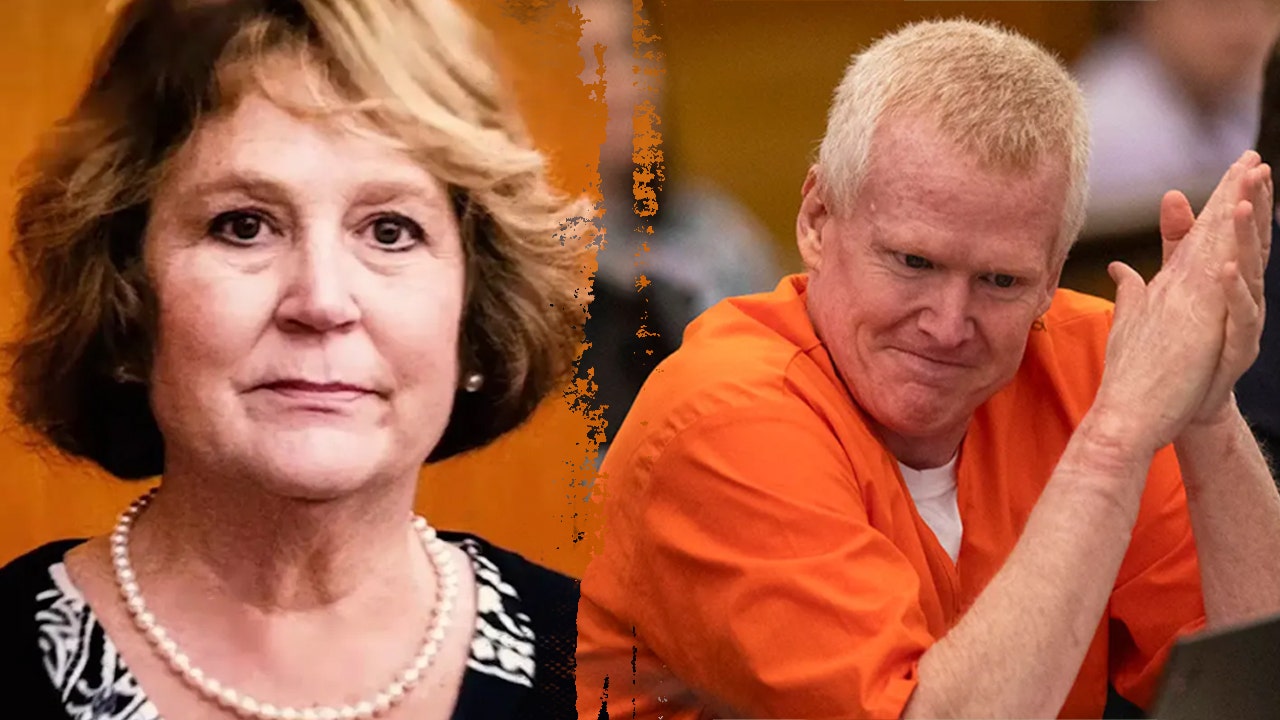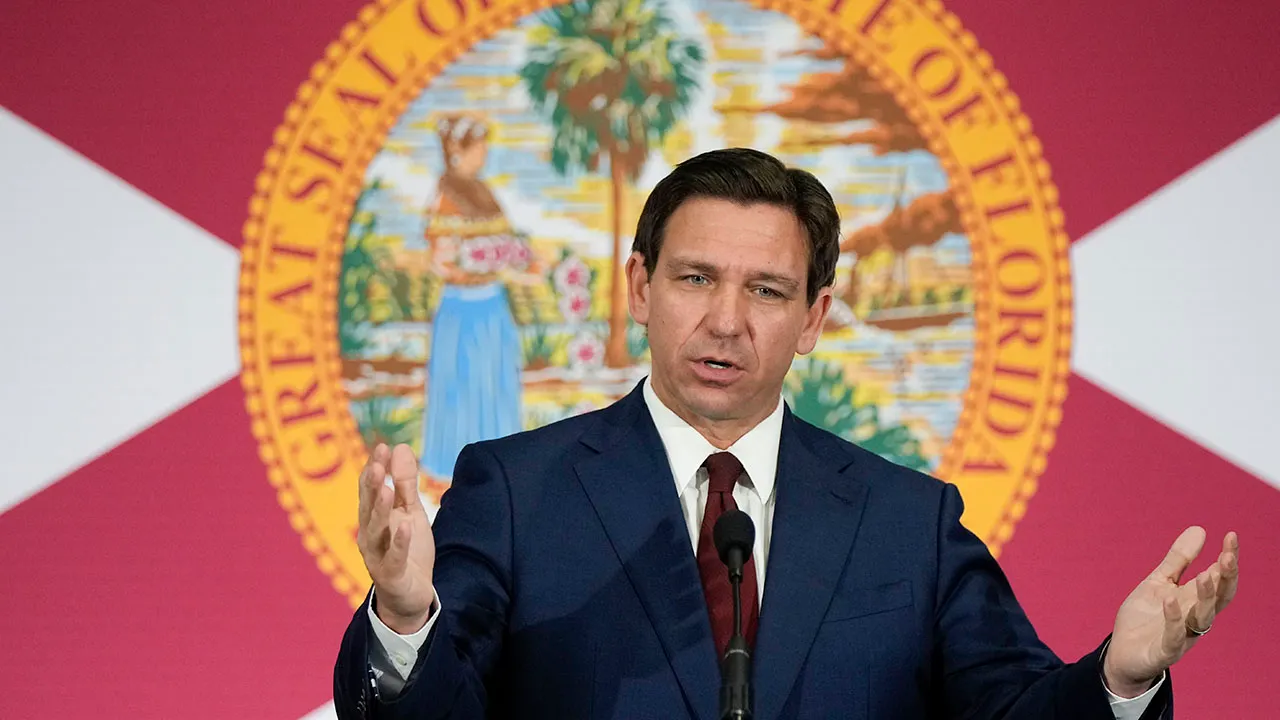Southeast
Georgia bill lowering threshold for proving intellectual disability in death penalty cases heads to Gov. Kemp

The Georgia Senate passed a bill on Monday easing the state’s strict burden of proof required for a death row inmate to be deemed intellectually disabled, which would make them ineligible for a death sentence.
The Peach State currently has the highest threshold in the nation for a person to prove they have an intellectual disability, allowing them to avoid the death penalty.
After a yearslong push to lessen requirements, the Senate approved H.B. 123 on Monday by a 53-1 vote. The measure now heads to Republican Gov. Brian Kemp’s desk after it was unanimously approved by the House earlier this month.
Georgia became the first state to outlaw the death penalty for intellectually disabled people in 1988. The U.S. Supreme Court later followed suit and ruled in 2002 that executing intellectually disabled people violates constitutional protections against cruel and unusual punishment.
GEORGIA HOUSE ADVANCES BILL TO EASE DEATH PENALTY LAW FOR INTELLECTUALLY DISABLED PEOPLE
The Georgia Senate approved H.B. 123 on Monday by a 53-1 vote. (Ben Gray/Atlanta Journal-Constitution via AP)
The Supreme Court allowed states to determine the threshold for a person to be considered intellectually disabled. Georgia requires proof of intellectual disability beyond a reasonable doubt, making it the only state with such a high burden of proof.
H.B. 123 would lower the standard to a preponderance of evidence and amend trial procedures to ensure people facing a death sentence receive a fair chance at convincing judges and jurors of their disability.
The bill would allow defendants to present evidence of intellectual disability at a pretrial hearing that would be mandatory if prosecutors agree. There would also be a separate process before the same jury for determining whether someone is guilty and has an intellectual disability.
Defendants who are found to have an intellectual disability would be exempt from the death penalty and receive alternative sentences.
In multiple cases in Georgia, lawyers have unsuccessfully argued that their clients had intellectual disabilities. Judges in some of these cases said they might have succeeded if the state’s rules were less strict.
GEORGIA MAN SENTENCED TO DEATH SEEKS CLEMENCY ON GROUNDS OF INTELLECTUAL DISABILITY
When the Georgia Supreme Court in 2021 upheld the death penalty for Rodney Young in a 2008 killing, the justices found he had failed to prove beyond a reasonable doubt that he was intellectually disabled, but then-Presiding Justice David Nahmias wrote that he would “embrace” legislative efforts to lower the threshold.
In another case, Warren Lee Hill was executed in Georgia in 2015 for killing a fellow detainee despite his lawyers arguing that he had an intellectual disability. In 2002, a judge said that if the state used a lower standard than reasonable doubt, Hill would likely have been found intellectually disabled.
Willie James Pye, whose IQ was allegedly low enough to show he was intellectually disabled, was executed in 2024 after his conviction in the 1993 rape and shooting death of his former girlfriend, Alicia Lynn Yarbrough. Pye’s lawyers argued he was intellectually disabled and brain-damaged.
H.B. 123 would lower the standard to a preponderance of evidence and amend trial procedures to ensure people receive a fair chance to convince judges and jurors of their disability. (AP Photo/Sue Ogrocki, File)
In the House, Democratic Rep. Esther Panitch argued that executing people with intellectual disabilities is a “moral failure.”
“How we protect the most vulnerable and intellectually disabled individuals facing the death penalty is the ultimate test of our collective moral character, and I submit that we must choose compassion over retribution and understanding over punishment,” Panitch said.
LAWYERS FOR ‘MORBIDLY OBESE’ DEATH ROW INMATE ARGUE HIS WEIGHT COULD CAUSE BOTCHED LETHAL INJECTION
District attorneys who opposed the rule change in the past have said more recently that they are fine with changing the reasonable doubt standard, but some have taken issue with a couple of procedural changes in the bill, including one that adds a pretrial hearing to determine whether someone has an intellectual disability that would be mandatory if prosecutors agree and another that establishes a separate process in a trial for determining whether someone is guilty and has an intellectual disability.
Most states have these options, and lawyers say changing the reasonable doubt threshold will not stop intellectually disabled people from receiving the death penalty unless there are also procedural changes.
The measure, sponsored by GOP state Rep. Bill Werkheiser, now heads to the governor’s desk. (AP)
Separate processes would allow jurors to evaluate whether someone is intellectually disabled without being influenced by the evidence of the crime the person committed, the lawyers argue.
Some prosecutors allege that the bill would make it too difficult to pursue the death penalty and would prevent the practice from being carried out at all. They say that lawmakers should just ban the death penalty if that is their desire, but lawmakers have said that is not their intention.
People would also have the option to receive sentences of life without parole if they are exempt from the death penalty, instead of just a life sentence.
A Senate committee has also tweaked the bill so it would go into effect immediately and apply to all pending cases.
The Associated Press contributed to this report.
Read the full article from Here

Southeast
Murdaugh trial court clerk pleads guilty to showing sealed crime scene photos to photographer

NEWYou can now listen to Fox News articles!
A former South Carolina court clerk pleaded guilty Monday in connection with showing sealed court exhibits related to the murder trial of disgraced attorney Alex Murdaugh to a photographer and lying about it in court.
Mary Rebecca “Becky” Hill, who served as the court clerk in Colleton County, pleaded guilty to four charges — obstruction of justice and perjury for showing a reporter photographs that were sealed court exhibits and then lying about it, plus two counts of misconduct in office for taking bonuses and promoting a book she wrote on the trial through her public office.
“There is no excuse for the mistakes I made. I’m ashamed of them and will carry that shame the rest of my life,” Hill said in a statement read to the court.
She was sentenced to three years of probation.
ALEX MURDAUGH’S MONEY MAN PAYS THE PRICE AFTER ADMITTING ROLE IN MILLION-DOLLAR CRIME SCHEME
Colleton County Clerk of Court Rebecca Hill is sworn in before taking the stand to testify during the Alex Murdaugh jury-tampering hearing at the Richland County Judicial Center, Monday, Jan. 29, 2024, in Columbia, S.C. (AP)
Her sentence would have been much harsher had evidence surfaced that she tampered with the murder trial, Judge Heath Taylor told Hill.
During Murdaugjh’s murder trial, Hill was responsible for taking care of the jury, overseeing exhibits and assisting the judge. Murdaugh was eventually convicted of murdering his wife and son after a six-week trial, which drew nationwide attention.
Murdaugh’s lawyers said Hill tried to influence jurors to vote guilty and that she was biased against Murdaugh because of her book.
ALEX MURDAUGH SLAMS NEW TRUE CRIME SERIES DEPICTING FAMILY’S DOUBLE-MURDER: ‘MISLEADING PORTRAYALS’
Former Colleton County Clerk of Court Mary Rebecca “Becky” Hill smiles after pleading guilty on Monday, Dec. 8, 2025, in St. Matthews, S.C. Hill pleaded guilty Monday to showing sealed exhibits from Alex Murdaugh’s murder trial and other charges. (AP Photo/Jeffrey Collins)
Solicitor Rick Hubbard told the judge that a journalist informed investigators that Hill showed graphic crime scene photos to several media members.
He did not name the journalist.
The photos were posted online, and the metadata from the images matched a time when Hill’s courthouse key card indicated she was inside the locked room where the photos were kept, Hubbard said.
Former Colleton County Clerk of Court Mary Rebecca “Becky” Hill is sworn in during a court hearing on Monday in St. Matthews, S.C. (AP Photo/Jeffrey Collins)
Hill resigned in March 2024. One of the charges against her stemmed from money prosecutors said she took for herself. She brought a check to court on Monday to repay nearly $10,000.
Journalist Neil Gordon who worked with Hill on “Behind the Doors of Justice: The Murdaugh Murders” and previously accused her of plagiarism, commented on Hill’s plea to Fox News Digital.
Former Colleton County Clerk of Court Mary Rebecca “Becky” Hill pleaded guilty Monday to showing sealed exhibits from disgraced attorney Alex Murdaugh’s murder trial and other charges. (Fox Nation/ Tracy Glantz/The State via AP, Pool)
“I appreciate seeing Becky step up and take responsibility for her actions, including the charge of misconduct in office, as it was directly related to the book I co-authored with her,” he said in a statement. “The specific instance was her decision to arrange a “Facebook Live” from her clerk’s office with the Colleton County Chamber of Commerce solely to promote our book.”
“The fact that it occurred during the workday showed boldness, poor judgement, and frankly ignorance of the oath she took as an elected official.,” he added. “Sadly, poor judgement around our book had been a pattern for Becky, as we later learned she plagiarized its preface.”
Meanwhile, Murdaugh is also serving a prison sentence for stealing money from his family’s law firm and client settlements.
CLICK HERE TO DOWNLOAD THE FOX NEWS APP
Fox News Digital has reached out to Murdaugh’s attorney.
The Associated Press contributed to this report.
Read the full article from Here
Southeast
Florida designates Muslim Brotherhood and CAIR as foreign terrorist organizations, DeSantis says

NEWYou can now listen to Fox News articles!
Florida is designating the Muslim Brotherhood and the Council on American-Islamic Relations (CAIR) as foreign terrorist organizations, Gov. Ron DeSantis said Monday.
The move mirrors a similar action taken by Texas in which Gov. Greg Abbott designated the CAIR and the Muslim Brotherhood as foreign terrorist and transnational criminal organizations.
“Florida agencies are hereby directed to undertake all lawful measures to prevent unlawful activities by these organizations, including denying privileges or resources to anyone providing material support,” DeSantis wrote on X.
TRUMP MOVES AGAINST MUSLIM BROTHERHOOD AS ISLAMIST GROUP SPREADS IN WEST
Florida Gov. Ron DeSantissaid CAIR and the Muslim Brotherhood will be designated as foreign terrorist organizations. (AP Photo/Rebecca Blackwell, File)
The governor’s order said the Muslim Brotherhood has long engaged in and supported violence, political assassinations and terror attacks on civilians with the intent of establishing a worldwide Islamic caliphate.
It also said the group, as well as Hamas have active fundraising arms in the United States.
SCATHING REPORT CALLS ON US TO LABEL ISLAMIST GROUP INFILTRATING ALL ASPECTS OF AMERICAN LIFE AS TERRORIST ORG
The order said CAIR, which was created to challenge stereotypes against Islam and Muslims, has had individuals associated with it that have been convicted of providing and aspiring to provide material support to foreign terrorist organizations.
In a post on X, Florida Attorney General James Uthmeier said: “Great news! Thanks for this important Executive Order, Governor. We are ready to support!”
A joint statement by CAIR and its Florida chapter said the DeSantis administration has prioritized serving their interest of the Israeli government over the people of the state.
“He diverted millions in Florida taxpayer dollars to the Israeli government’s bonds. He threatened to shut down every Florida college’s Students for Justice in Palestine chapter, only to back off when CAIR sued him in federal court,” the statement said. “Like Greg Abbott in Texas, Ron DeSantis is an Israel First politician who wants to smear and silence Americans, especially American Muslims, critical of U.S. support for Israel’s war crimes. Governor DeSantis knows full well that CAIR-Florida is an American civil rights organization that has spent decades advancing free speech, religious freedom, and justice for all, including for the Palestinian people. That’s precisely why Governor DeSantis is targeting our civil rights group with this unconstitutional and defamatory proclamation.
“We look forward to defeating Governor DeSantis’ latest Israel First stunt in a court of law, where facts matter and conspiracy theories have no weight,” the groups added. “In the meantime, we encourage all Floridians and all Americans to speak up against this latest attempt to shred the Constitution for the benefit of a foreign government.”
Florida’s designation is at the state level. It doesn’t carry the legal force of a federal Foreign Terrorist Organization (FTO) listing, which only the U.S. State Department can issue.
In Texas, Muslim and interfaith leaders have demanded that Abott reverse his proclamation regarding CAIR. In a lawsuit against Texas over the governor’s declaration, CAIR argued that it violates both the U.S. Constitution and state law.
Texas Gov. Greg Abott designated CAIR, the Council on American-Islamic Relations, as a foreign terrorist organization. (Getty Images)
The order violates its First Amendment rights and due-process protections, CAIR said, arguing that the state overstepped its authority because terrorism designations fall under federal, not state, jurisdiction.
Read the full article from Here
Southeast
Florida mom says teens ‘lured’ 14-year-old daughter into woods before shooting, setting her on fire: report

NEWYou can now listen to Fox News articles!
The mother of murdered Florida teenager Danika Troy says her 14-year-old daughter was lured into the woods by one of the boys now charged with killing her, a teen she believed had romantic feelings for her.
In an interview with the New York Post, Ashley Troy said 16-year-old Gabriel Williams “pretended to have feelings for her,” leading Danika to trust him enough to follow him into the wooded trail where she was ambushed.
“That’s how she was lured,” she said.
Williams and 14-year-old Kimahri Blevins have both been charged with first-degree premeditated murder in Danika’s death.
FAMILIES CLAIM TEEN MURDER SUSPECT WAS ‘PLOTTING’ DEADLY HIT-AND-RUN FOR MONTHS BEFORE KILLING TWO GIRLS
The mom of Danika Troy, a 14-year-old Florida teenager, says she believes her daughter was lured into the woods by Gabriel Williams, who allegedly pretended to have romantic feelings before the girl was murdered. (GoFundMe)
Ashley said she is still desperate for answers. “I still need answers. I’m just left asking why,” she told the outlet. “She just wanted to be in love.”
Danika was reported missing by her mother on Dec. 1. The next day, a passerby discovered her body in a wooded area in Pace, a community in Florida’s Panhandle. Investigators said she had been shot multiple times and set on fire.
Authorities quickly identified the alleged killers, two teens who knew Danika from school, and took them into custody.
MOTHER SAYS ALLEGED STALKER WHO KILLED HER DAUGHTER SHOULD BE TRIED AS AN ADULT
Authorities said two teenagers are facing murder charges in the death of 14-year-old Danika Troy, who was found shot to death and burned in a wooded area in Florida after being reported missing. (Santa Rosa County Sheriff’s Office)
Detectives initially believed the murder may have stemmed from a social-media dispute over Thanksgiving break. According to the sheriff’s office, the boys claimed they targeted Danika because she had blocked Blevins on social media and called Williams “worthless and a gang banger.”
Ashley rejected that narrative. “What those boys said is an excuse,” she told the Post.
Santa Rosa County Sheriff Bob Johnson confirmed Thursday that Danika’s body had been positively identified and said investigators rapidly zeroed in on Williams and Blevins. Both suspects had prior “run-ins” with law enforcement, he said, though details were not released because of their ages.
TEEN MURDER SUSPECT ALLEGEDLY SWATTED VICTIM’S HOME WEEKS BEFORE DEADLY HIT-AND-RUN: LAWYER
Santa Rosa County Sheriff Bob Johnson told reporters that the suspects were supposedly friends with the victim from school. He said investigators were still working to determine a motive. (Santa Rosa County Sheriff’s Office)
Johnson described the killing in stark terms.
“This is where it gets really horrific,” he said, explaining that Williams allegedly stole his mother’s handgun before shooting Danika. “It’s bad enough you kill a 14-year-old. You’re 14. You’re 16. Shoot her multiple times, and then they set her on fire.”
The motive for the killing remains unclear. Johnson said the explanations the teens offered “don’t fit the forensics or any facts of the case,” adding, “so we don’t have a legit motive.”
REPEAT OFFENDER ALLEGEDLY KILLS 14-YEAR-OLD GIRL, HAS CRIMINAL HISTORY DATING BACK TO 2000: OFFICIALS
Both suspects remain held without bond at the Department of Juvenile Justice on first-degree murder charges. Prosecutors are coordinating with investigators as they determine whether the teens will be charged as adults.
“If you do an adult crime, you gotta do adult time,” Johnson said.
Ashley previously said she believes “evil influence” played a role in her daughter’s killing, but she wants accountability. She said she wants “nothing less than for them to be prosecuted to the full extent of the law.”
CLICK HERE TO DOWNLOAD THE FOX NEWS APP
Fox News Digital reached out to the Santa Rosa County Sheriff’s Office for comment, but did not immediately receive a response.
Fox News Digital’s Stephen Sorace contributed to this report.
Stepheny Price covers crime, including missing persons, homicides and migrant crime. Send story tips to stepheny.price@fox.com.
Read the full article from Here
-

 Iowa2 days ago
Iowa2 days agoAddy Brown motivated to step up in Audi Crooks’ absence vs. UNI
-

 Washington1 week ago
Washington1 week agoLIVE UPDATES: Mudslide, road closures across Western Washington
-

 Iowa1 week ago
Iowa1 week agoMatt Campbell reportedly bringing longtime Iowa State staffer to Penn State as 1st hire
-

 Iowa4 days ago
Iowa4 days agoHow much snow did Iowa get? See Iowa’s latest snowfall totals
-

 Miami, FL1 week ago
Miami, FL1 week agoUrban Meyer, Brady Quinn get in heated exchange during Alabama, Notre Dame, Miami CFP discussion
-

 Cleveland, OH1 week ago
Cleveland, OH1 week agoMan shot, killed at downtown Cleveland nightclub: EMS
-
World1 week ago
Chiefs’ offensive line woes deepen as Wanya Morris exits with knee injury against Texans
-

 Technology6 days ago
Technology6 days agoThe Game Awards are losing their luster











